Roger Federer After Turning 30: Is There Another Slam Title in His Future?
Turning thirty can be traumatic for any normal human being.
Some stepping over that threshold suffer overwhelming angst, knowing that Bob Dylan once swore you could not trust anybody over thirty. Seriously—at one point in the recent past, Dylan was akin to God in certain circles, causing some recently turned thirty-somethings to weep copiously over lost youth, sensing all was lost.
On the other hand, Dylan is now over 65—so surely he has learned to trust himself despite living well beyond those prophetic 30 years.
For a tennis pro today, however, reaching thirty presents a true turning point—not simply a psychological marker. The legs grow heavier and the foot, a step slower. Unerring instinct now takes a second longer to kick into gear.
For most tennis players having played for over a decade brings steady decline if not resignation, ending in retirement. Time seemingly has expired requiring shelving or recycling for the majority.
That was not always the case in men’s professional tennis. There were some notable exceptions from bygone days when tennis players were not millionaires and fame was hard to come by.
Think of Bill Tilden who played professional tennis well into his forties. During the 1920s we can safely attest, however, that the competition taking the court against Big Bill was hardly the same caliber as today’s players. Still, Tilden helped Americanize the game, altering its path from strenuous past time to highly competitive sport.
The great and enigmatic Pauncho Gonzalez seemed unbeatable in his thirties, playing top-notch tennis well into his forties. Consider, too, that Rod Laver won his second grand slam while age 31 in 1969—at the beginning of the Open Era in men’s tennis.
![]() Other men have been successful, winning slams after age 30 like Roy Emerson who won the 1967 French Open title or like John Newcombe who won the 1975 Australian Open having turned 30 years of age in 1974. Renowned Arthur Ashe won his 1975 Wimbledon title at age 32.
Other men have been successful, winning slams after age 30 like Roy Emerson who won the 1967 French Open title or like John Newcombe who won the 1975 Australian Open having turned 30 years of age in 1974. Renowned Arthur Ashe won his 1975 Wimbledon title at age 32.
But that was then and this is now.
What does being “thirty-something” mean today as world No. 3 Roger Federer turns 31 in August of this year?
The great tennis maestro has not won a major since the 2010 Australian Open when he was 28 years of age. To date, Federer has 16 grand slam trophies on his mantle. You can rest assured that the Swiss wants to add a couple more. The motivation seems intact.
At age 22, Federer first climbed to World No. 1 February 2, 2004 after securing his first Australian Open title. He took the top spot from American Andy Roddick who ended 2003 as the the No. 1 player in the world.
Federer’s ascension was eight years ago—but like a Swiss St. Bernard—seemingly 56 years ago in the average tennis fan’s memory—or so it must seem to Federer these days.
From 2004 through 2007, Federer dominated the men’s tour winning virtually everything except the French Open which, starting in 2005, seemed to be owned by Spanish teenager Rafael Nadal.
But beginning in 2008, hindered by a siege of mononucleosis during the Australian Open, Federer’s star began to wane. This as Nadal continued to improve, winning his first non-clay major at Wimbledon. The top two players in the world engaged in an epic five-set final on Centre Court in 2008 that included everything including torrential rain, long delays off court and descending darkness.
Federer wept losing Wimbledon after five straight championships. Nadal’s sheer will to win, overtaking Federer at the finish line, hit home hard for the world No. 1 that day.
![]() Shortly thereafter, the Swiss lost the No. 1 ranking to Nadal—August 18, 2008. Federer dropped back to No. 2.
Shortly thereafter, the Swiss lost the No. 1 ranking to Nadal—August 18, 2008. Federer dropped back to No. 2.
You have to remember that Federer captured majors three at a clip in 2004, 2006 and 2007—failing to win the Australian Open in 2005. In stark contrast in 2008, Federer only won the US Open.
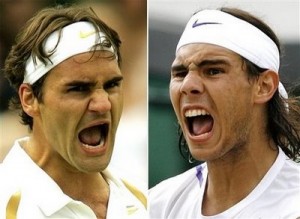
Nadal finally defeated Federer during the 2008 Wimbledon final, ending Federer's Wimbledon streak at 5 consecutive titles.
In 2009 with Nadal sent home early, Federer won the French Open and Wimbledon, losing the US Open to Juan Martin del Potro. He also resumed the No. 1 ranking for almost another year.
After winning the Australian Open in 2010, however, Federer has remained shut out at majors, stuck on 16 grand slam titles.
Pete Sampras
Federer’s brief contemporary, Pete Sampras, was born on August 12, 1971—almost ten years to the day before baby boy Federer arrived on the world stage. The American Sampras played professional tennis for 14 years, first rising to the No. 1 ranking in 1993.
In 2002 Sampras unofficially retired from professional tennis after winning his fourteenth grand slam title at the US Open. At that time Sampras was sure that 14 titles would be a record that would hold for years to come.
Even though Sampras dominated the tour from 1993-1997, in 1998 the Sampras game began to show cracks in its veneer. The American ended 1998 as the No. 1 player but his dominance had begun to weaken. Chilean Marcelo Rios barked at his heels throughout 1998.
In 1999, at 28 years of age, saddled with a bad back and a resurgent Andre Agassi, Sampras lost his No. 1 ranking after the US Open, ending the year ranked World No. 3.
Pistol Pete never again regained the top spot or dominated men’s tennis.
![]() Sampras was 31-years-of-age when he stopped playing professional tennis, having won 14 grand slam singles titles, 64 singles titles overall, having spent a record 286 weeks at No. 1 throughout his career.
Sampras was 31-years-of-age when he stopped playing professional tennis, having won 14 grand slam singles titles, 64 singles titles overall, having spent a record 286 weeks at No. 1 throughout his career.
It should be noted that Sampras won a single grand slam tournament after age thirty—the 2002 US Open.
Andre Agassi
Sampras’ chief rival, Andre Agassi, played well-past thirty years of age in his long professional tennis career. The young man from Las Vegas played his first professional tennis match at age 16 and his last at age 36 completing a life in tennis that stretched over 20 years.
Agassi won 8 grand slam singles titles throughout his career, appearing in 15 major finals. The American won a career grand slam, which meant Agassi won a title at each grand slam venue. He also won an Olympic gold medal in men’s singles in 1996.
Agassi rose to the No. 1 ranking first in 1995 at age 24. His last turn at No. 1 ended in August of 2003 at age 33. Agassi thrived on outlasting opponents with his superb physical fitness.
He won two grand slam titles after age 30—both in Melbourne at the Australian Open in 2001 and 2003, the year Agassi retired.
Agassi was the last man past age 30 to win a major. That was nine years ago.
Roger Federer’s Future?
The question remains—will Agassi continue to be the last man standing or will Roger Federer manage to find a way through the next major draw and into another final without having to face Nadal?
![]() Last year the Swiss made it to the French Open final where he met Nadal once again. Federer lost to Nadal at Stade Roland Garros for the fifth time—four times in French Open finals.
Last year the Swiss made it to the French Open final where he met Nadal once again. Federer lost to Nadal at Stade Roland Garros for the fifth time—four times in French Open finals.
Staying relevant in the game and winning after reaching age 30 is much more difficult today. With new technology, the game has evolved requiring more speed, more power, more torque and much more endurance, physically and mentally.
The pace of the tour means that players are hurt more often and burn out more quickly.
But Federer seems to have risen above the predictable path to arrive relatively unscathed at age 30. His legion of fans believe that the Swiss Maestro has more big wins ahead of him.
We have grown to expect Federer to win, to reach major finals, to thrill crowds with his athletic, effortless movements around the court. But now fans wait with bated breath hoping the great man is “on” this day, that his serve is clicking and that the opponent’s play is not what it could be.
Most of all they hope Federer does not have to play Nadal before reaching the final.
Much as Pete Sampras waited to win No. 14, Federer will be patient, waiting for his moment to shine again on center court during a major final, joining Agassi as the next man to win a slam over age thirty during 2012.
Will it be the French Open? Wimbledon? or maybe the US Open? Stay tuned…
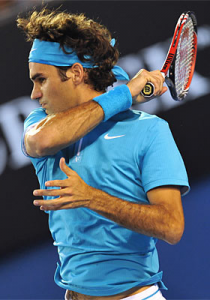
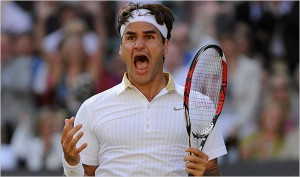
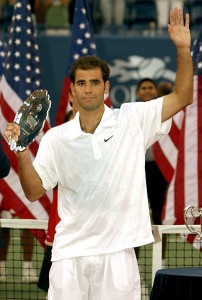
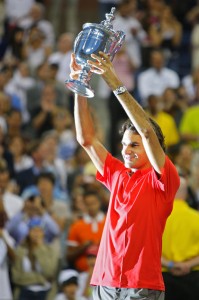
This is by far the best characteristic, since I truly do a great deal of trail driving. Now off-roading will be thrilling alone, however when you’ve got some Metallica or even Deftones warp speed, and you’re simply trucking butt through the foothills, it is really an great feeling.
In Australia and New Zealand the word “lounge” can be used to refer to either a the sofa or couch or the
room it is in. Where sofas are concerned, you can get
extremely creative with colors. as functionality and nature are the name of the game.
I am truly grateful to the owner of this site who has shared
this great article at at this time.